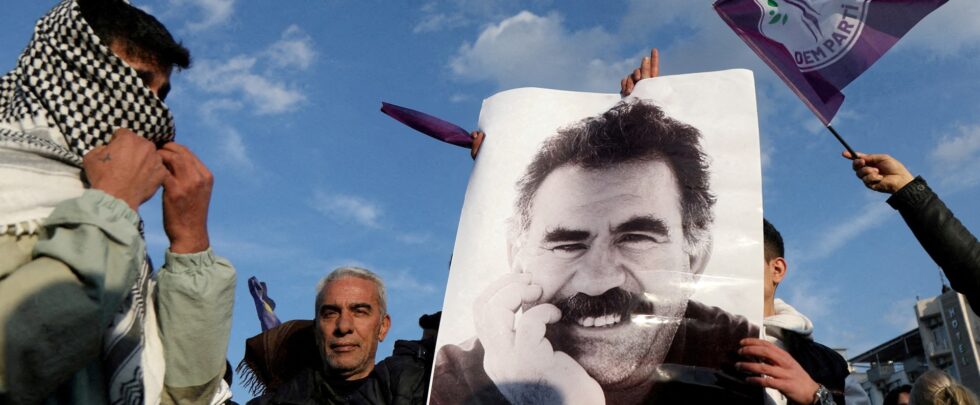Shifting regional sands
The announcement signals the potential end of a conflict that has plagued the region, spilling over into northern Iraq and Syria.
Iraq on Monday evening welcomed the PKK’s announcement to dissolve, calling it a step towards lasting regional stability.
The Ministry of Foreign Affairs in Baghdad described the move as “a significant opportunity to promote peace efforts and end longstanding conflicts”.
Its statement also said the development would “strengthen security and stability in Iraq and the region” with the government hopeful it would reduce tensions across its northern borders. The PKK presence in Iraq has long been a major source of tension with neighbouring Turkiye. Earlier, the president of Iraq’s semiautonomous Kurdish region, Nechirvan Barzani, said the PKK decision “demonstrates political maturity … and lays the foundation for a lasting peace that would end decades of violence, pain and suffering”. In February, Ocalan – who has been in jail since 1999 – called on the group to lay down its arms and dissolve itself in a bid to end the hostilities, which have killed tens of thousands of people since the 1980s. The PKK, which is listed as a “terrorist organisation” by Turkiye and most Western states, announced a ceasefire days later but set conditions to disband, including the establishment of a legal mechanism for peace talks. The group said the Kurdish people would embrace peace and a democratic process and “will understand the decision to dissolve the PKK and end the armed struggle method better than anyone else”. “We believe that Kurdish political parties, democratic organisations and opinion leaders will fulfil their responsibilities in developing Kurdish democracy and ensuring the formation of a Kurdish democratic nation.” The announcement by the PKK comes against a backdrop of significant changes in the region, including a new administration in Syria, the weakening of the Hezbollah armed group in Lebanon and the ongoing Israel-Hamas war in Gaza. In recent years, the PKK has been limited to isolated attacks inside Turkiye as the military pushed its fighters across the mountainous border into Iraq. Barzani said the PKK’s disarmament would strengthen regional stability. The latest peace initiative was launched in October by Erdogan’s coalition partner Devlet Bahceli. The far-right politician suggested Ocalan could be granted parole if the PKK renounced violence and disbanded. In late February, Erdogan described the group’s potential dissolution as a “historic opportunity to advance towards the objective of destroying the wall of terror”.
PKK fighters’ future unclear
Any concessions the PKK might obtain in exchange for its decision to disband have not been disclosed. Details of the peace initiative have not been made public, and it remains unclear how the process would proceed, including how weapons would be disposed of, who would monitor the procedures and the future of PKK fighters – whether they might be relocated to third countries. “If terrorism is completely eradicated, it will open the door to a new era,” Celik said. However, he warned that the decision must apply to all “PKK branches, affiliates and illegal structures”. That appears to be a reference to Kurdish fighters in Syria, who have ties to the PKK and have been involved in intense fighting with Turkish-backed forces there.
The leader of the United States-backed, Kurdish-led Syrian Democratic Forces previously stated that Ocalan’s call for a ceasefire does not apply to his group in Syria.















